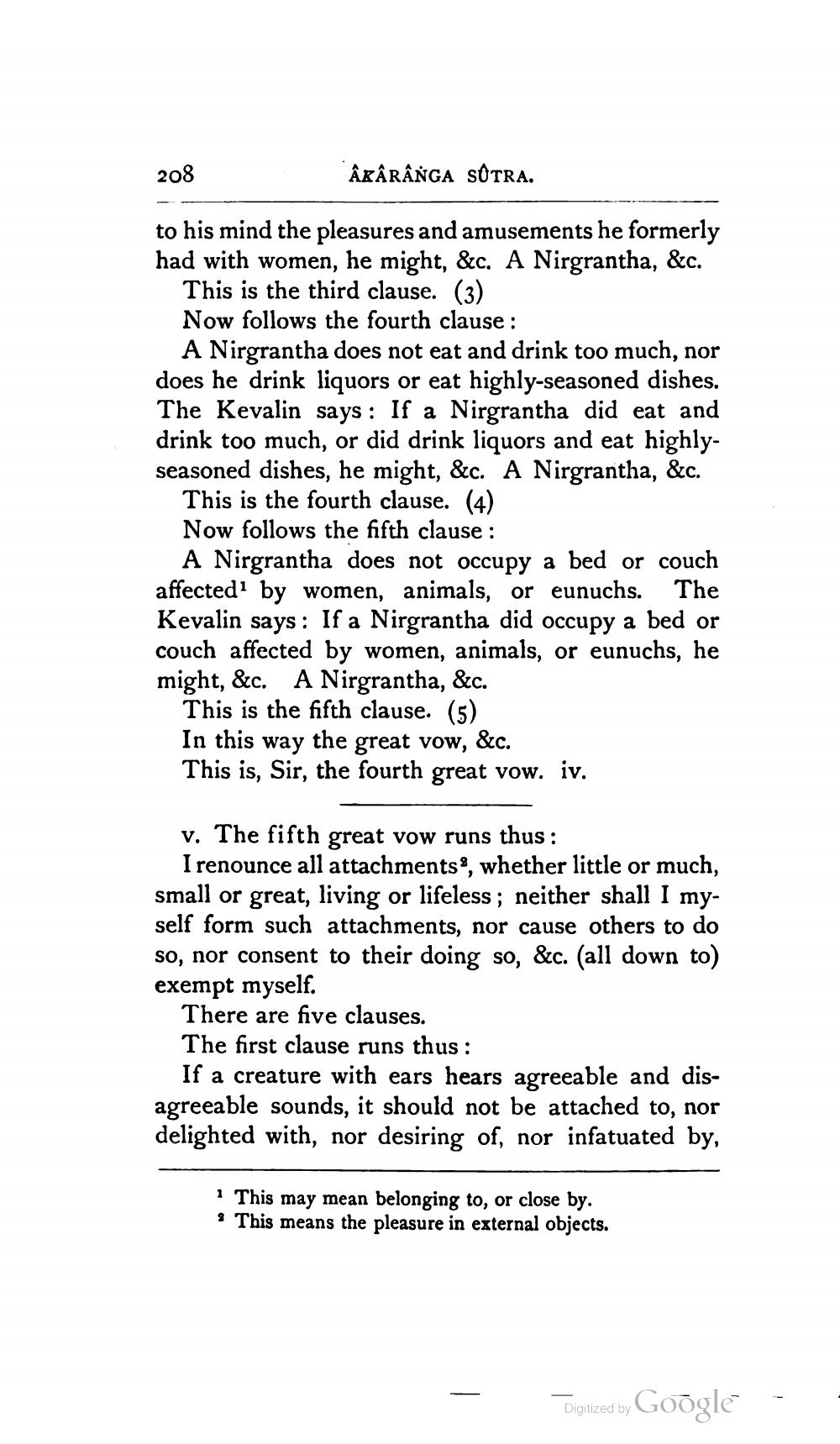________________
208
CÂXÂRÂNGA SÚTRA.
to his mind the pleasures and amusements he formerly had with women, he might, &c. A Nirgrantha, &c.
This is the third clause. (3) Now follows the fourth clause:
A Nirgrantha does not eat and drink too much, nor does he drink liquors or eat highly-seasoned dishes. The Kevalin says: If a Nirgrantha did eat and drink too much, or did drink liquors and eat highlyseasoned dishes, he might, &c. A Nirgrantha, &c.
This is the fourth clause. (4) Now follows the fifth clause :
A Nirgrantha does not occupy a bed or couch affected1 by women, animals, or eunuchs. The Kevalin says: If a Nirgrantha did occupy a bed or couch affected by women, animals, or eunuchs, he might, &c. A Nirgrantha, &c.
This is the fifth clause. (5) In this way the great vow, &c. This is, Sir, the fourth great vow. iv.
v. The fifth great vow runs thus:
I renounce all attachments, whether little or much, small or great, living or lifeless; neither shall I myself form such attachments, nor cause others to do so, nor consent to their doing so, &c. (all down to) exempt myself.
There are five clauses. The first clause runs thus :
If a creature with ears hears agreeable and disagreeable sounds, it should not be attached to, nor delighted with, nor desiring of, nor infatuated by,
This may mean belonging to, or close by. . This means the pleasure in external objects.
Digitized by
Digitized by Google
-




